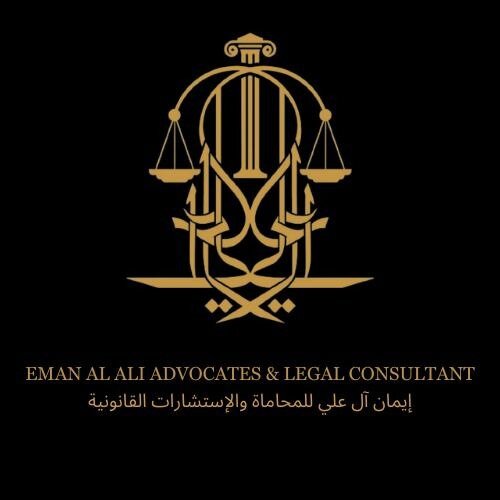
Best Corporate & Commercial Lawyers in Dubai
Share your needs with us, get contacted by law firms.
Free. Takes 2 min.
List of the best lawyers in Dubai, United Arab Emirates

United Arab Emirates Corporate & Commercial Legal Articles
Browse our 6 legal articles about Corporate & Commercial in United Arab Emirates written by expert lawyers.
- How Can Businesses Comply with AI and Legal Tech Laws in the UAE? (11 Practical Steps)
- AI systems and legal-tech tools are altering how companies function throughout the UAE. Yet, as innovation increases, so does the need for effective AI governance and compliance with local technology and data protection regulations. The UAE’s developing legislative environment compels enterprises to manage risks, safeguard personal data and promote transparency... Read more →
- 6 Risks and Consequences of AI Non-Compliance in the UAE
- Artificial Intelligence (AI) is transforming the legal and commercial landscape across the UAE, but rapid adoption also brings new responsibilities. With the nation’s strong commitment to innovation and digital transformation, reflected in initiatives like the UAE National Strategy for Artificial Intelligence 2031, regulators are also introducing more robust rules for... Read more →
- How Do I Resolve a Commercial Contract Dispute in the UAE?
- Table of ContentsIntroduction: Navigating Business DisagreementsUnderstanding the Legal Framework in 2025A Step-by-Step Guide to Dispute ResolutionStep One: Review the Contract ThoroughlyStep Two: Attempt Negotiation and MediationStep Three: Arbitration in the UAEStep Four: Litigation in UAE CourtsCommon Causes of Commercial Contract DisputesThe Role of Free Zones in Dispute ResolutionPractical Tips for... Read more →
About Corporate & Commercial Law in Dubai, United Arab Emirates
Dubai has become a major business hub in the Middle East, attracting companies and entrepreneurs from around the world. Corporate and commercial law in Dubai governs everything from business setup and restructuring to mergers, acquisitions, and commercial transactions. This legal field covers the framework for company formation, shareholder agreements, regulatory compliance, dispute resolution, and other business operations. Dubai's legal environment combines federal UAE law, Dubai-specific legislation, and, in some areas, free zone regulations. Understanding these laws is crucial for anyone doing business in the city.
Why You May Need a Lawyer
Legal issues in the corporate and commercial field can be complex, and seeking help from a qualified lawyer offers significant value. Common reasons to consult a corporate and commercial lawyer in Dubai include:
- Forming a new company, particularly if you are a foreign investor or wish to set up in a free zone
- Reviewing, drafting, and negotiating commercial contracts and agreements
- Restructuring or reorganizing a business
- Mergers, acquisitions, or joint ventures
- Intellectual property protection and licensing
- Regulatory compliance with local, federal, or free zone authorities
- Shareholder disputes or other commercial disputes
- Labor and employment matters within a corporate structure
- Winding up or liquidating a company
- Franchise and distribution arrangements
Professional legal advice can help you avoid costly mistakes, ensure compliance, and safeguard your business interests.
Local Laws Overview
Corporate and commercial law in Dubai is primarily governed by federal UAE law, particularly the UAE Commercial Companies Law (Federal Law No. 32 of 2021), which sets out the requirements for business formation, corporate governance, and shareholder rights. Additionally, Dubai has specific regulations, especially in its many free zones, such as the Dubai International Financial Centre (DIFC) and Dubai Multi Commodities Centre (DMCC), each with its own legal frameworks and administrative processes.
Key legal aspects include:
- Company formation: Different structures are available (LLC, branch, free zone company, etc.), each with ownership, capital, and reporting requirements.
- Foreign ownership: Recent reforms have allowed 100 percent foreign ownership in many sectors, though some restrictions remain for strategic industries.
- Commercial contracts: These must comply with UAE law, with specific requirements for validity, enforceability, and dispute resolution clauses.
- Dispute resolution: Commercial disputes may be resolved through local courts, free zone judicial bodies, or arbitration centers like DIAC.
- Compliance: Businesses must adhere to local regulations, including economic substance requirements, anti-money laundering laws, and reporting obligations.
It is important to understand which legal framework applies to your business and to consult a legal professional for tailored advice.
Frequently Asked Questions
What are the main types of business entities in Dubai?
The most common business structures include Limited Liability Companies (LLC), branches or representative offices of foreign companies, and free zone companies. Each type has its own requirements and benefits depending on your objectives and sector.
Can a foreigner own 100 percent of a company in Dubai?
Yes, recent legal changes have allowed 100 percent foreign ownership in most sectors on the mainland, with some exceptions for strategic sectors. Free zones have always permitted complete foreign ownership.
Do I need a local sponsor or partner to set up a company?
For mainland companies, this may still be required in certain sectors where foreign ownership is restricted. In most free zones, a local sponsor is not necessary.
What should be included in a commercial contract?
Key elements include clear definitions of parties, scope of work, payment terms, duration, confidentiality, dispute resolution mechanisms, termination conditions, and compliance with applicable UAE laws.
How are commercial disputes typically resolved in Dubai?
Disputes can be resolved through the UAE courts, free zone courts (where applicable), or arbitration centers. Arbitration is commonly used for commercial matters due to its privacy and efficiency.
Are there specific regulations for free zones?
Yes, each free zone has its own set of rules and administrative processes. These often provide advantages such as tax benefits and 100 percent foreign ownership, but may come with specific compliance obligations.
What are the requirements for company liquidation or winding up?
The process varies based on company type and jurisdiction. Generally, it involves clearing debts, settling employee dues, canceling licenses, and deregistering from authorities. Legal guidance is recommended to ensure compliance.
How does the UAE protect intellectual property?
Intellectual property (IP) is protected through registration systems for trademarks, copyrights, and patents, governed by UAE federal law. Enforcement is available through administrative, civil, and criminal procedures.
What is the role of the Dubai Department of Economy and Tourism (DET)?
DET is the authority for licensing, regulating, and monitoring businesses in Dubai, outside of free zones. It approves trade names, issues commercial licenses, and oversees commercial compliance.
What are the key compliance requirements for businesses in Dubai?
Businesses must comply with licensing rules, taxation (such as VAT), economic substance regulations, anti-money laundering laws, and reporting obligations imposed by local and federal authorities.
Additional Resources
For more information and assistance in the field of corporate and commercial law in Dubai, consider the following resources:
- Dubai Department of Economy and Tourism (DET) - for business setup and licensing outside free zones
- Dubai International Financial Centre Authority (DIFC Authority) - for regulations related to financial services and companies based in DIFC
- Dubai Chamber of Commerce and Industry - offers support and guidance for businesses operating in Dubai
- Ministry of Economy (UAE) - for federal regulations, intellectual property registration, and foreign investment rules
- Dubai International Arbitration Centre (DIAC) - for resolving commercial disputes through arbitration
- Relevant free zone authorities, such as DMCC, Dubai Silicon Oasis Authority, and Jebel Ali Free Zone Authority
Next Steps
If you need legal assistance related to corporate and commercial matters in Dubai, it is recommended to take the following steps:
- Gather all relevant documents such as existing contracts, business plans, and correspondence
- Clearly identify your legal objectives and the specific issues you need to address
- Research and shortlist experienced corporate and commercial lawyers or law firms with knowledge of Dubai and UAE business laws
- Schedule a consultation to discuss your case and obtain guidance on your legal position, risks, and recommended actions
- Consider ongoing legal support to stay compliant with evolving regulations and to protect your business interests in the long term
Navigating corporate and commercial law in Dubai requires expertise and a thorough understanding of the local legal landscape. Engaging a qualified lawyer is the best step to ensure your business activities are secure, compliant, and set up for success.
Lawzana helps you find the best lawyers and law firms in Dubai through a curated and pre-screened list of qualified legal professionals. Our platform offers rankings and detailed profiles of attorneys and law firms, allowing you to compare based on practice areas, including Corporate & Commercial, experience, and client feedback.
Each profile includes a description of the firm's areas of practice, client reviews, team members and partners, year of establishment, spoken languages, office locations, contact information, social media presence, and any published articles or resources. Most firms on our platform speak English and are experienced in both local and international legal matters.
Get a quote from top-rated law firms in Dubai, United Arab Emirates — quickly, securely, and without unnecessary hassle.
Disclaimer:
The information provided on this page is for general informational purposes only and does not constitute legal advice. While we strive to ensure the accuracy and relevance of the content, legal information may change over time, and interpretations of the law can vary. You should always consult with a qualified legal professional for advice specific to your situation.
We disclaim all liability for actions taken or not taken based on the content of this page. If you believe any information is incorrect or outdated, please contact us, and we will review and update it where appropriate.
Browse corporate & commercial law firms by service in Dubai, United Arab Emirates
Dubai, United Arab Emirates Attorneys in related practice areas.














